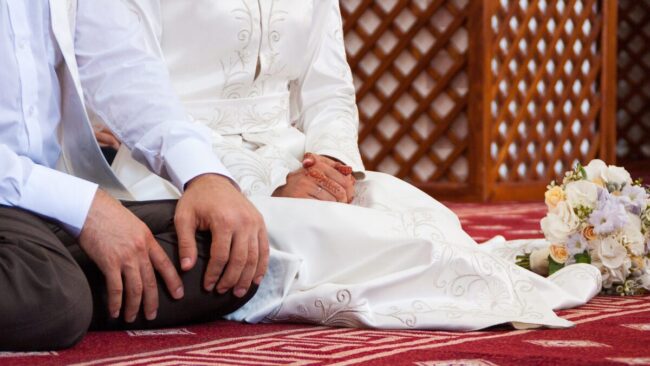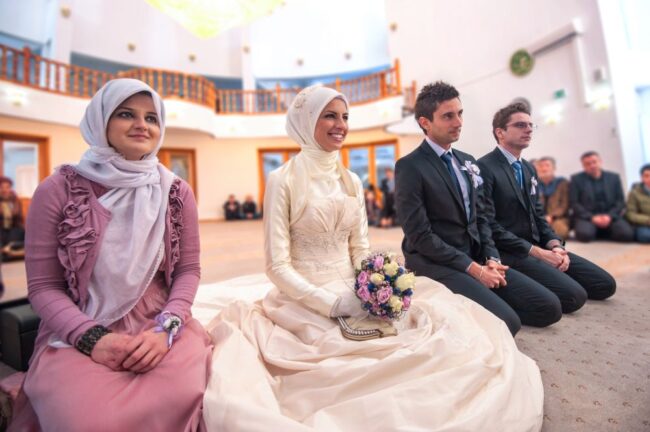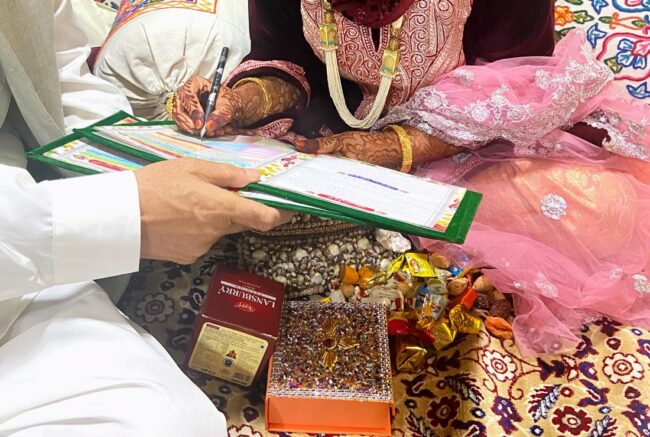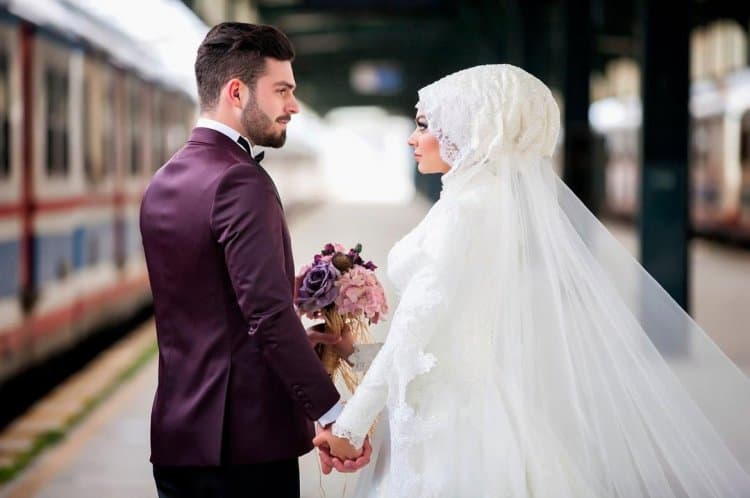Marriage in Islam is regarded as a sacred union with certain conditions based on the Quran and the Prophet Muhammad’s (SAW) teachings. As a prospective Muslim bride or groom, it is important to understand the 4 conditions of marriage in Islam comprehensively.
According to Islamic Shariah, the primary condition of marriage is the consent of the guardian (Walee), who ensures the bride’s best interests and protection.
Other conditions involve the presence of witnesses, Ijab and Qubool (formal offer and acceptance), and Mahr (the bride’s dowry).
These conditions ensure the marriage is transparent and accountable, emphasizing the bride’s and groom’s mutual agreement and willingness to get married.
We will elaborate on each of these conditions of Islamic marriage, providing you with relevant facts and details to prepare you for marriage under Islamic principles.
4 Conditions of Marriage in Islam: Detailed Analysis With Verses From the Quran and Hadiths

According to the Quran and Hadiths, there are four essential criteria for marriage in Islam.
- Consent of the guardian (Walee)
- Presence of witnesses
- Offering and acceptance (Ijab and qubool)
- Mahr (Dower)
1. Consent of the Guardian (Walee)
In Islam, the requirement for the guardian’s consent (walee or wali) stands as a pivotal condition for the validity of a marriage. It’s the bride’s lawful guardian, typically a male figure, who ensures the groom’s suitability for her and also protects her rights during the wedding process.
Such is the significance of the walee’s role that proceeding with marriage without their consent is considered a transgression.
In the hadith narrated by Abu Dawud, at-Tirmidhi, and Ibn Majah through the words of Abu Musa al-Ash’ari, the Prophet Muhammad (SAW) said: “There is no marriage except with a guardian,”. This indicates the importance of a guardian’s approval and presence during the marriage preparation process.
There are profound implications associated with the hierarchy of potential guardians. Traditionally, a bride’s father is preferred as a walee, followed by male relatives like grandfathers, brothers, and paternal uncles.
However, in cases where a woman lacks male relatives, as is the situation for a newly embraced Muslim bride, the Muslim ruler can step in as her walee.
Valid guardians must also meet specific requirements. They must be a Muslim, male, and mature. Additionally, they need to be of sound mind and have good intentions.
Pro Tip: Looking for a Muslim bride or groom? Check Noble Marriage, one of the prominent Islamic matrimonial websites with thousands of verified profiles.
2. Presence of Witnesses

The presence of witnesses is another essential condition for any Islamic marriage to be considered valid. Two male witnesses, or one male and two female witnesses, must be present during the marriage contract ceremony. Witnesses must also be of good character, honest, and trustworthy.
A witness’ role is to verify the legitimacy of the marriage and ensure its transparency. Thus, they must be present when signing the marriage contract and must hear both parties agree to the marriage.
The requirement for witnesses is based on the hadith of the Prophet Muhammad (SAW), saying: “There is no marriage except with a guardian and two witnesses of good character.” This hadith is narrated by al-Bayhaqi from the hadith of Imraan and ‘Aa’ishah, considered saheeh by al-Albaani in Saheeh al-Jaami’, no. 7557.
3. Offering and Acceptance (Ijab and Qubool)
Another essential requirement of a valid Islamic marriage is the formal offer (Ijab) and acceptance (Qubool) between the bride and groom.
Both parties must clearly express their consent and acceptance of the marriage. This condition emphasizes the bride and groom’s consent and willingness to enter into the marriage contract. It is essential to not force or arrange the marriage without either party’s consent in order for this to be possible.
4. Mahr (Dower)

Mahr is a financial obligation imposed on the groom as part of the marriage contract. It serves as a symbol of the husband’s commitment to providing for his wife’s financial well-being.
The amount of mahr is not fixed by Islamic law and can be mutually agreed upon by the bride and groom. It can be given immediately, deferred, or in any form agreed upon. This condition ensures that the financial rights of the bride are protected and that she is not left vulnerable in case of divorce or separation.
In the Quran, mahr refers to the graciously given dowries to women. According to the Quran, An-Nisa’ 4:4, Allah says: “Give women ˹you wed˺ their due dowries graciously. But if they waive some of it willingly, then you may enjoy it freely with a clear conscience.”
The Prophet Muhammad encouraged reasonable and uncomplicated mahr agreements. According to a hadith, Allah’s Messenger Muhammad (SAW) stated: “The best marriage is one that is easiest.” (Sahih Ibn Hibban: 4163)
By meeting this condition, couples can start their lives together without undue financial stress, and the financial burden of marriage will not be too great.

This practice necessitates treating all wives equitably and fairly, encompassing financial support, housing, sustenance, clothing, and general benevolent treatment. If a man cannot uphold this equity standard, he is not permitted to have multiple wives.
These conditions underscore the paramount importance of justice and the well-being of all spouses in polygamous marriages, forming the ethical framework governing this practice in Islamic society.
Adopt the Sacred Path of Islamic Matrimony with the Right Principles and Blessings
The 4 conditions of marriage in Islam are as straightforward as they are profound in their significance. You now understand these conditions, rooted in verses of the Quran and strengthened by Muhammad’s teachings (SAW).
Basically, the guardian’s consent, the witness’s presence, the offering and acceptance, and the Mahr (dower) constitute an Islamic marriage.
Embrace these principles as you embark on the sacred journey of marriage, guided by the wisdom of scripture and the traditions of your faith. Your marriage will be strong and sanctified as long as you remain committed to your union.
